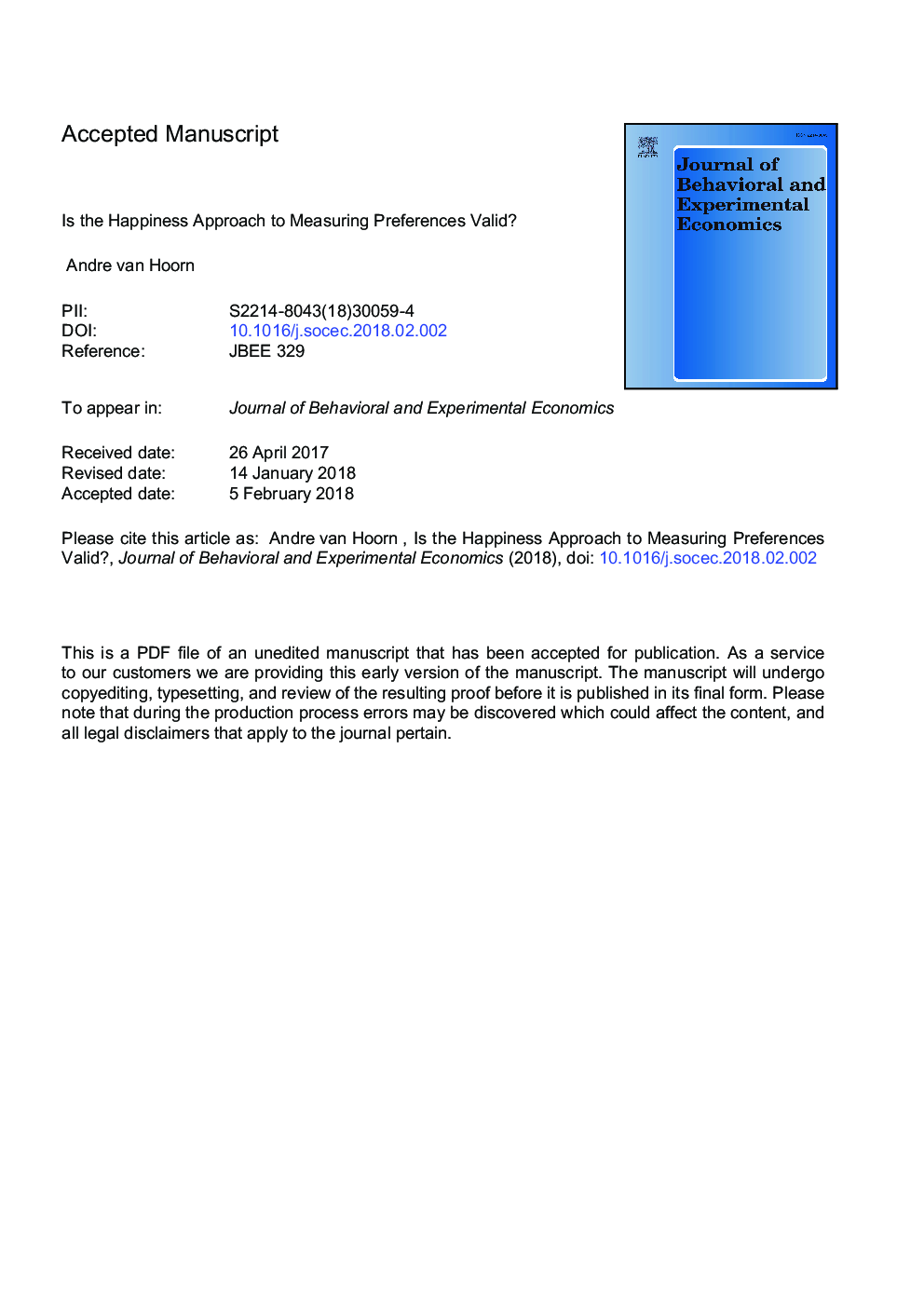| Article ID | Journal | Published Year | Pages | File Type |
|---|---|---|---|---|
| 7241982 | Journal of Behavioral and Experimental Economics | 2018 | 30 Pages |
Abstract
Estimating heterogeneous happiness or subjective well-being (SWB) functions and making inferences about differences in people's tastes or preferences has some interesting advantages over stated and revealed preferences methods and is growing in popularity. However, evidence on the validity of such SWB-based or “inferred” preferences measures, meaning these measures' ability to capture what they are supposed to capture, is lacking, widespread evidence on the (construct) validity of SWB indicators themselves notwithstanding. Empirical analysis reveals that differences in preferences inferred from heterogeneity in estimated happiness functions map onto differences in self-reported behavior and attitudes in expected ways, suggesting that SWB-based measures of differences in preferences indeed capture the construct they are supposed to capture. Hence, the conclusion that the happiness approach provides a valid means for making inferences about differences in people's preferences.
Related Topics
Social Sciences and Humanities
Economics, Econometrics and Finance
Economics and Econometrics
Authors
André van Hoorn,
